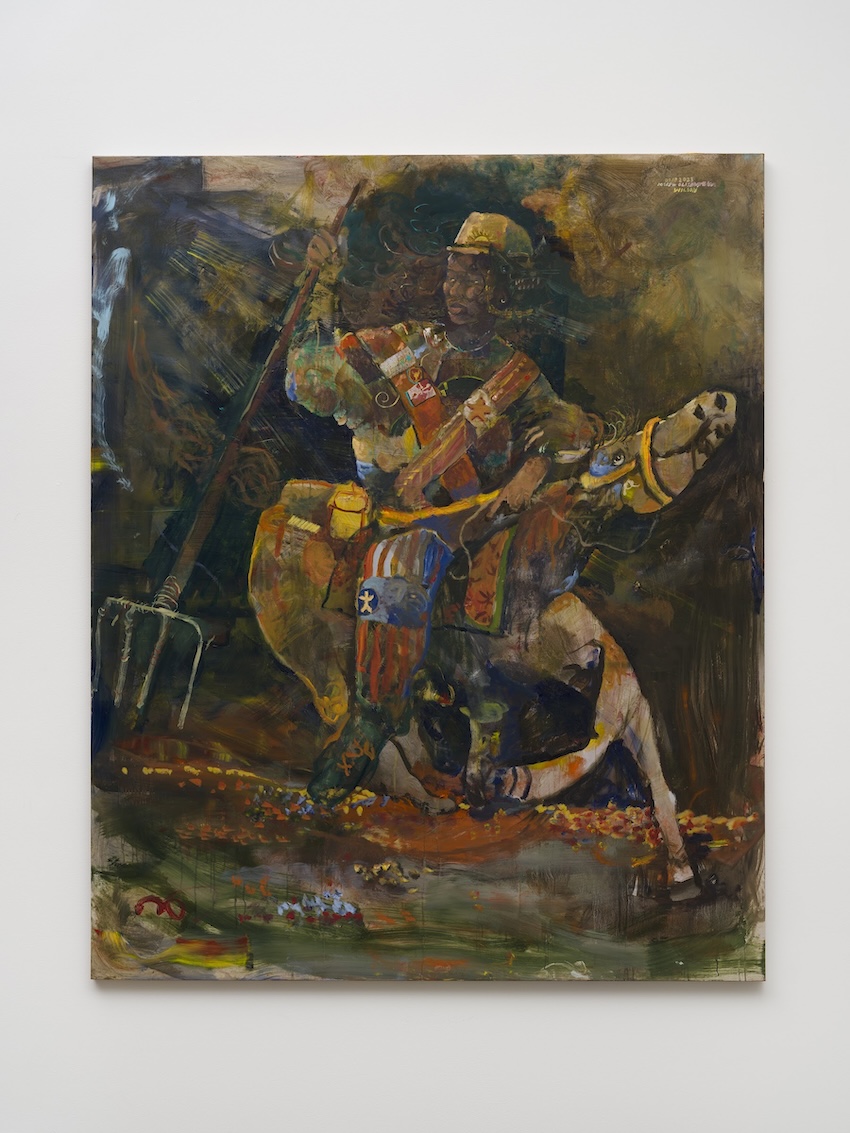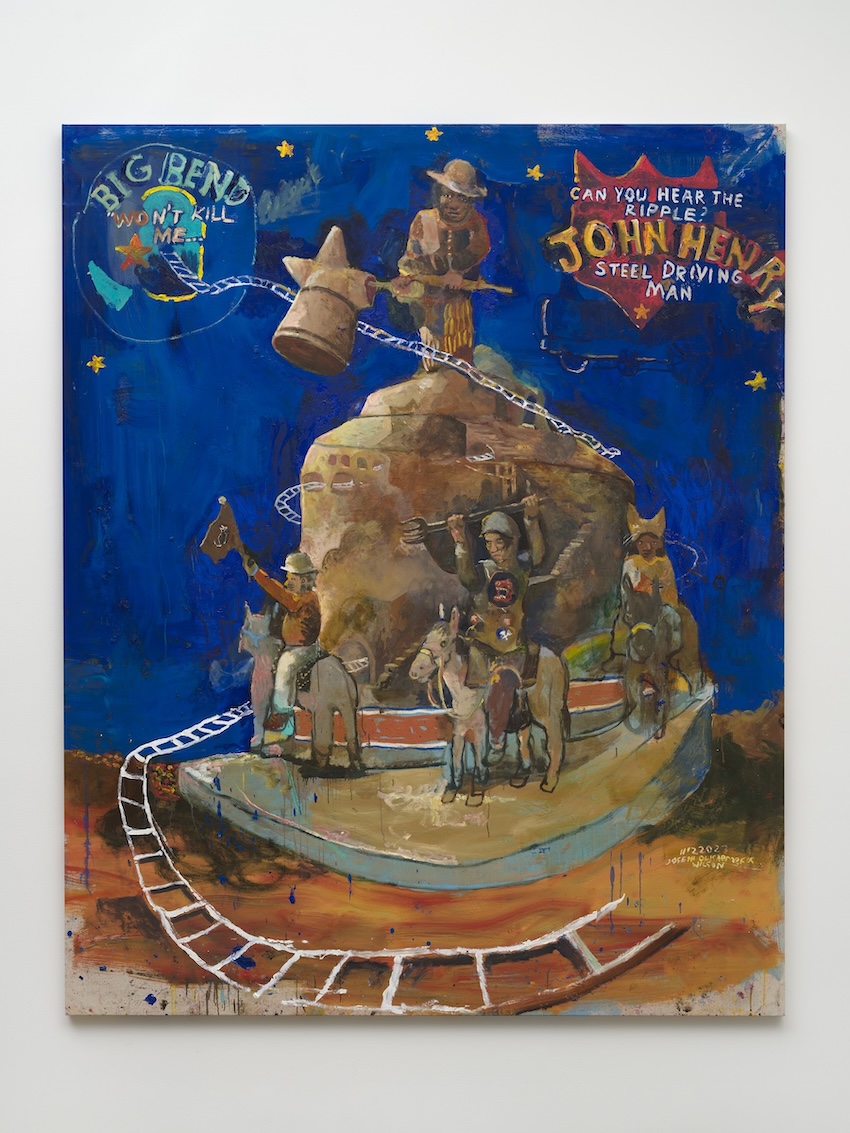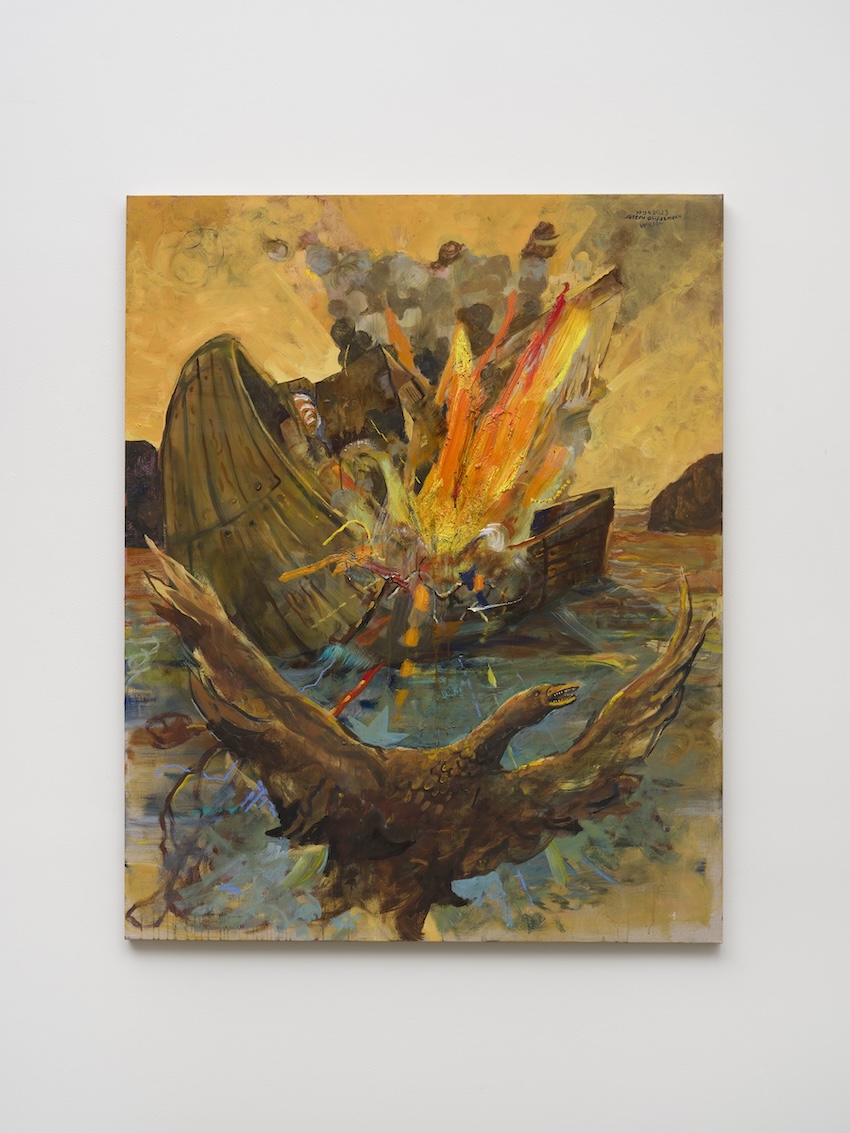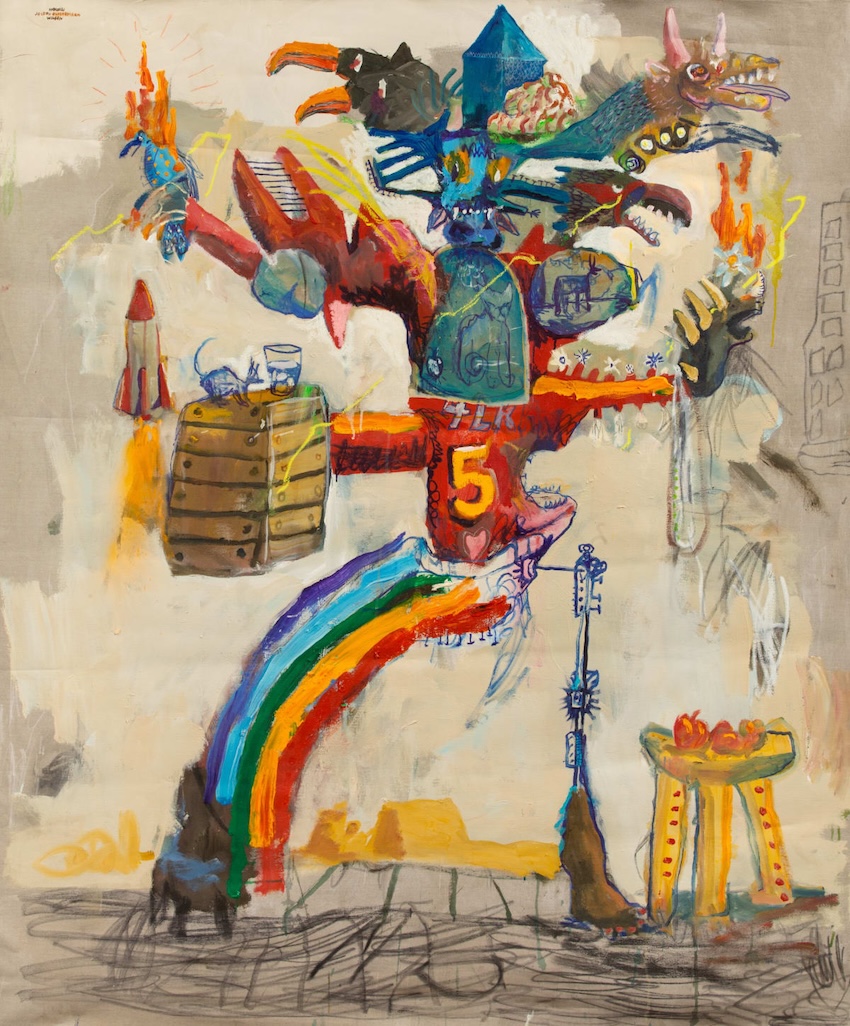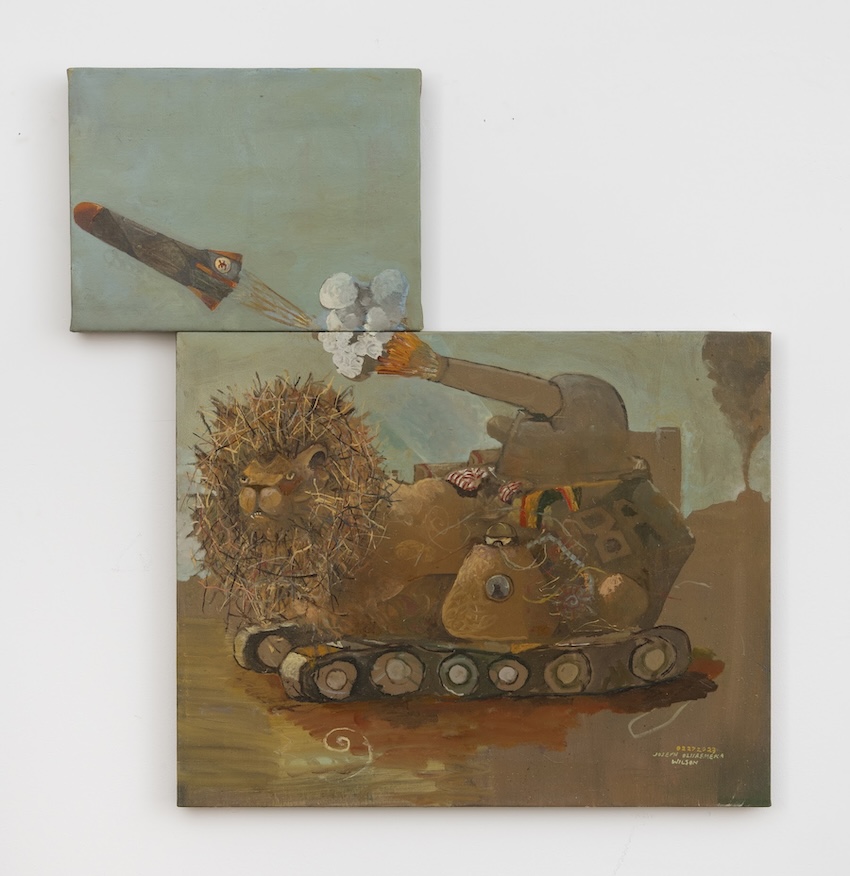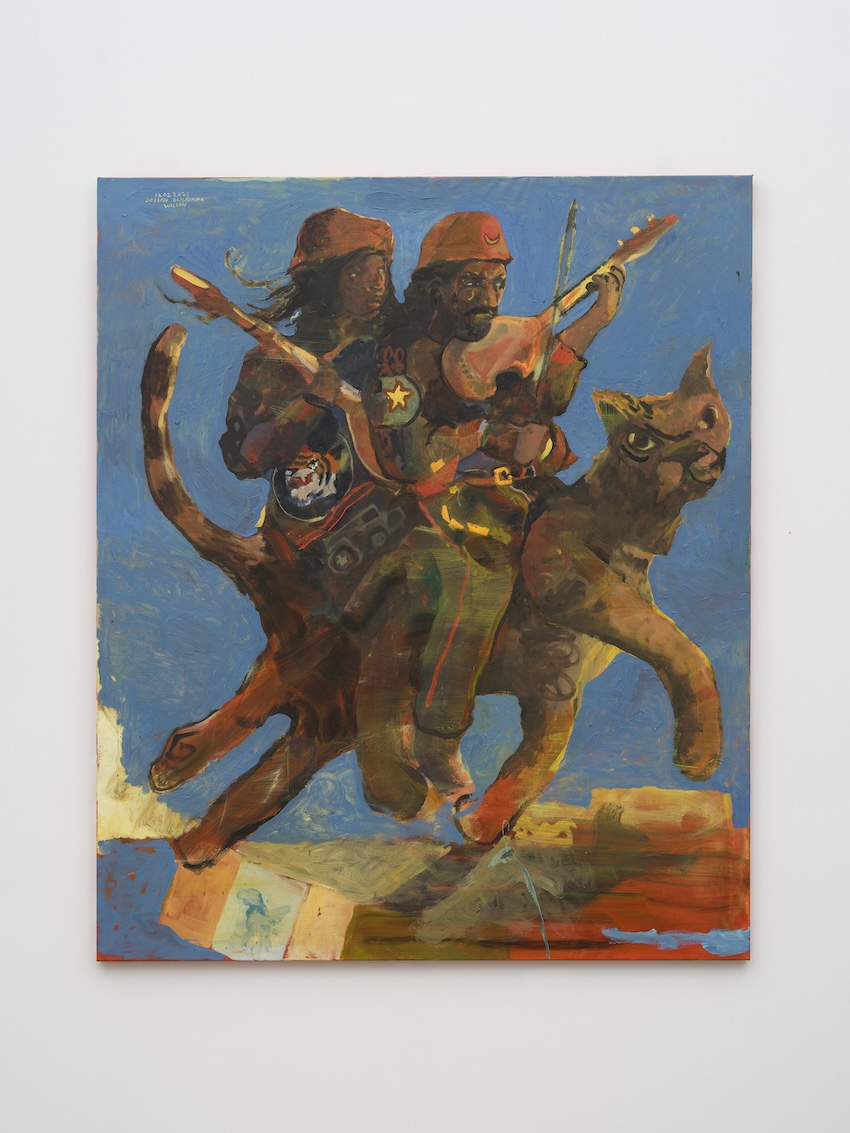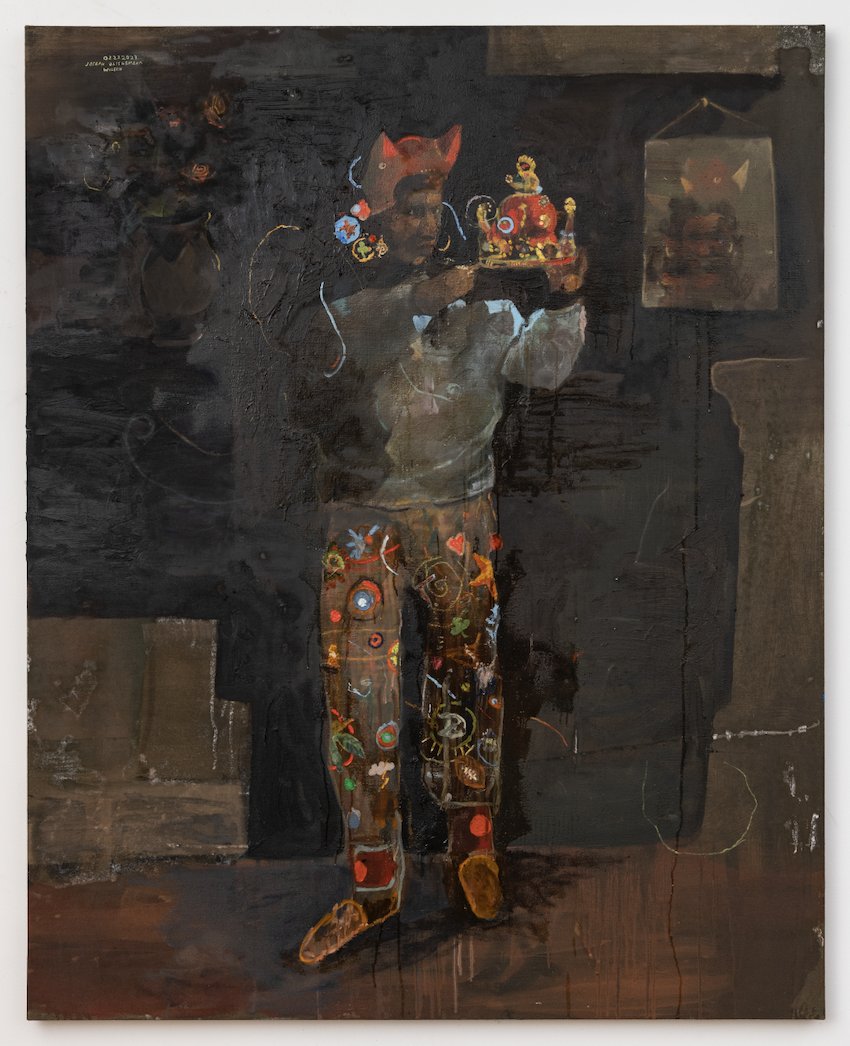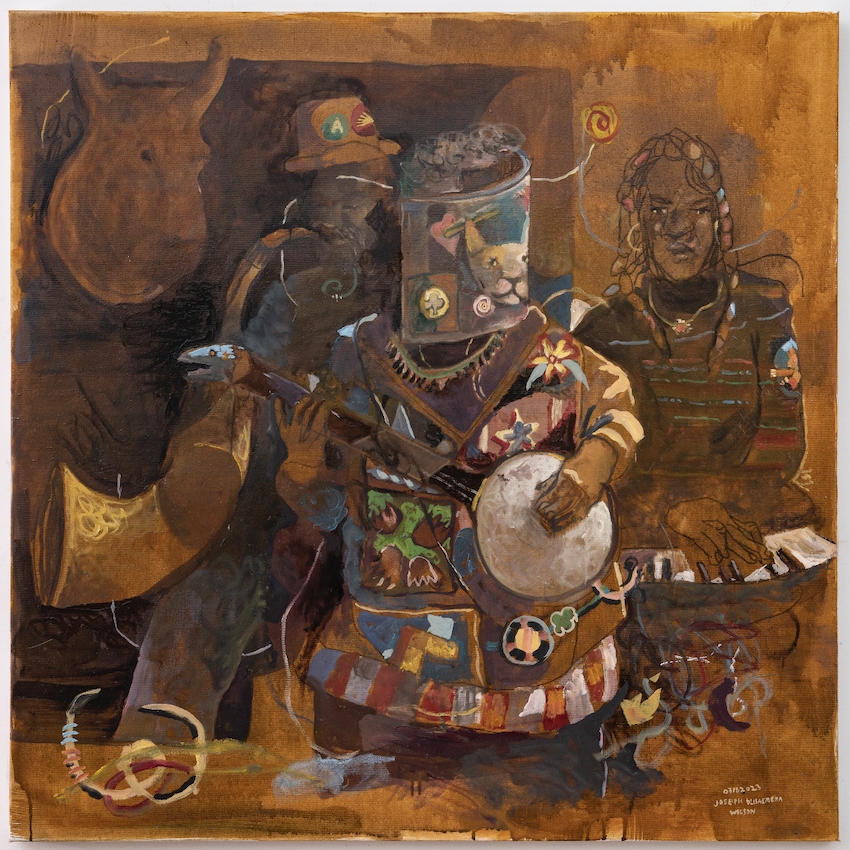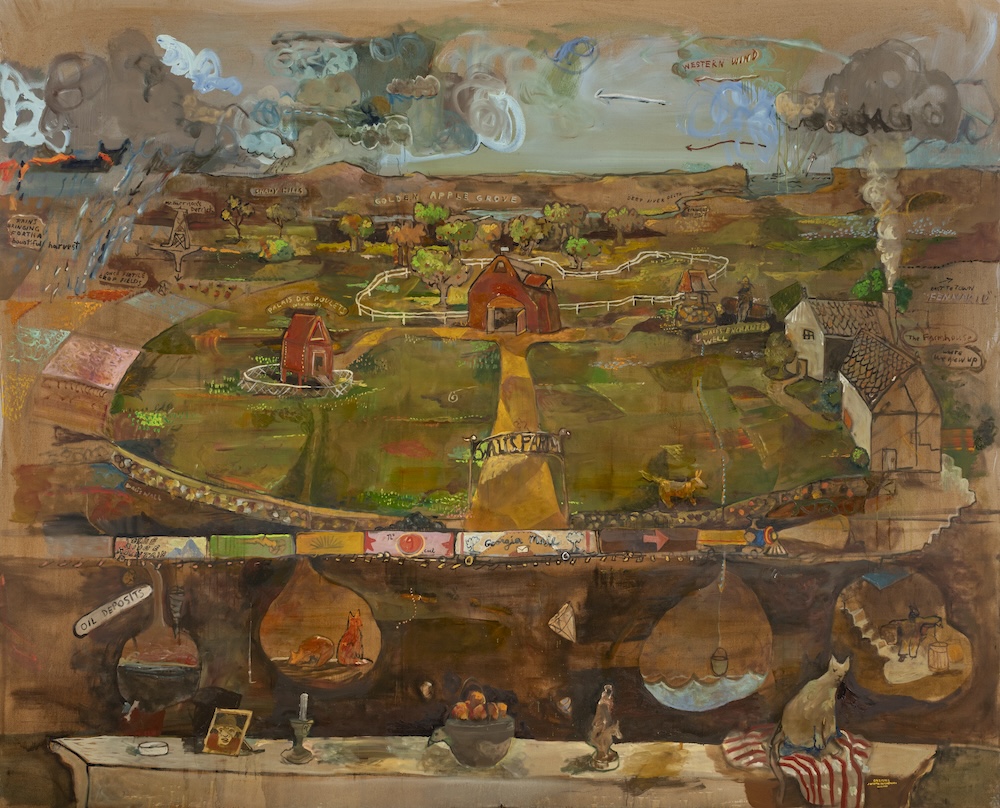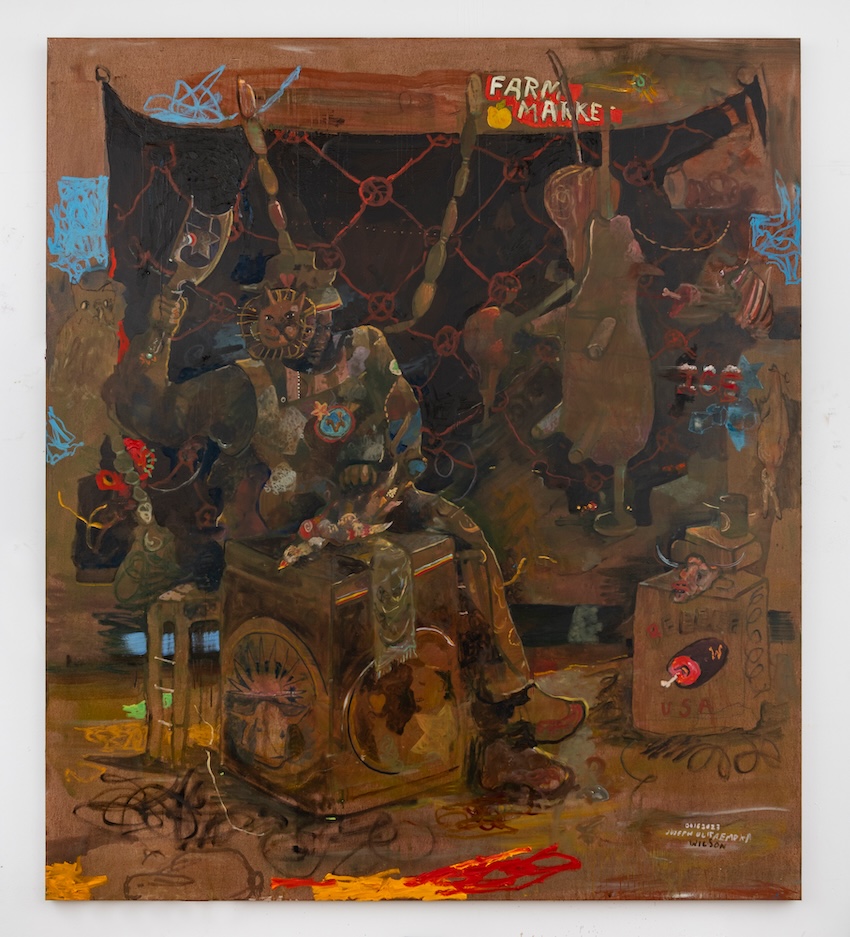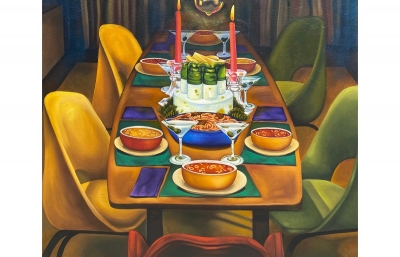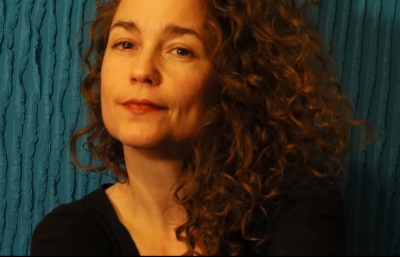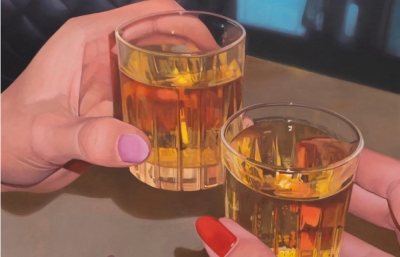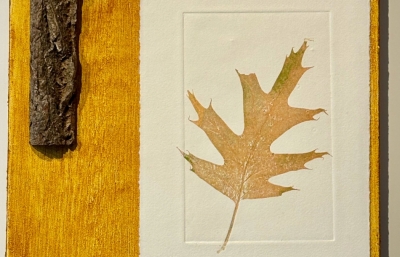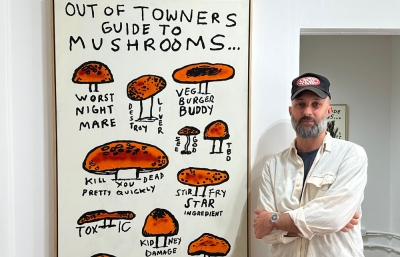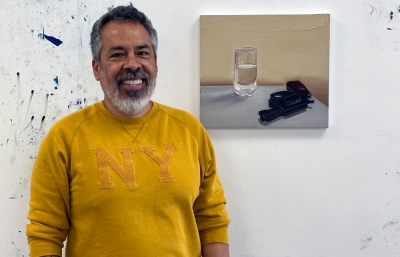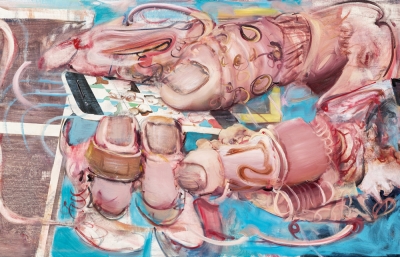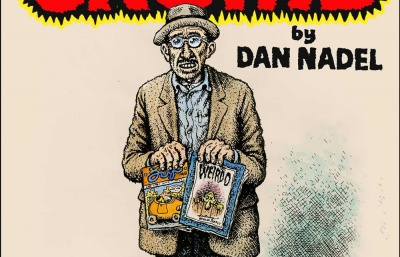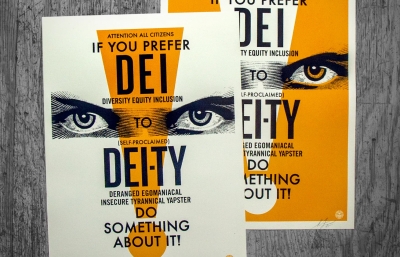Inside the head of Joseph Olisaemeka Wilson is a winding maze, the walls covered in earthy clay, mandolin music rippling from speakers unseen. It is a place where he can cruise, eyes open wide to both the joys and horrors of life. When there is joy, he can question the origin of that happiness, how it manifests within the body and moves its way through. In the face of horror, he stands defiantly, bearing witness to its existence and unafraid to perceive the truth. The maze in Wilson’s mind turns to farmlands that, in time, turn into warfields, then into fairs hosting traveling Americana bands and nomads of the like. The art is a practice made up of his daily encounters and the worlds they inspire within, appearing on the road he travels. For Wilson, I think the point isn’t to find the end of the maze or even control it, but to be thankful for every meander and drift for as long as time might allow.

Shaquille Heath: This might be a weird question to start things off with, but many of my favorite works of yours are kind of apocalyptic and doomsday. They feel like subjects you must think about a lot. So I was wondering if you had thoughts on what you imagine the end of the world is going to look like.
Joseph Olisaemeka Wilson: Some say the world will end in fire. Others say in ice. Have you ever read that poem by Robert Frost they had us read in high school? I guess I don’t know… It's all written in the Book of Revelations—all those details. It's gonna be like dragons, like big tsunamis and earthquakes and, you know, horrible sorts of devils. And things are gonna fall out of the sky. I need to reread some of the chapters.
Do you think that you would have a role if there was some sort of apocalypse?
You know, I try my best to just kind of just go with the flow. I don't think I'm gonna be picking sides. I kind of hope that I get to take the train up, you know, instead of getting stuck here on Earth before all that happens.
So you have no desire to have a doomsday bunker?
No! No! That's not my style, haha. Let me just wash away. Or I would love a ride uptown.
I think I’m that way too. As soon as shit starts going down, I’m ready to just bounce.
Yeah, that's kind of when I would just call it a day.
I love to ask artists to explain their work in their own words. So I was hoping I could ask that of you?
I don't think I can do that. I make paintings of nouns. You know, that's about as much as I can say about it. I really have no idea how to describe it. It's the thing that I do every day, you know?
Where do some of your inspirations come from? Like, do you pull from artists or movies, or do these things kind of come to you in dreams? Maybe you just kind of approach the canvas and get to work?
I think sometimes you just need to kind of walk up and make a mark. And then sometimes I'll have an idea that I feel like I need to execute. But it can come from just the physical act of trying to make something. Some sort of burden or particular message, I suppose. But I think everything, from things you read to a song or an argument you had with a guy at the gas station, could come from anything, I suppose.
So, in a lot of your artwork, would you say you're pulling from life experiences that you're having?
Yeah, especially more recently. It might have an allegorical or kind of metaphorical setup or something. That's what keeps my attention, you know? That's the only thing I can speak about, if things have happened to me, you know.
You had a show months ago called Songs About War at Vielmetter in LA that was centered around this military general. Can you tell me about Field General Wali Wallace?
I don't know much about the guy. All I know is that he's been through the wringer. I've never met him or anything. I don't know about his story. He's one of those guys that all he knows is war. You know, from the minute he came into this world, he was thrown into the fire. He had some recordings that he made—some field records and some sort of radio thing. During the conflict, I guess that he was sort of broadcasting to an audience and telling them what's been going on in this war and playing music. I think he's a bit of a musician, too.
How did you come across him?
Just research and stuff about American history. He's kind of an American Great. But not much is known about him. I kind of consider myself to be his biographer.
What drew you to the General? After you learned about him, what made you want to create work?
You know, I think I kind of took it as my duty. It's like when someone who didn't have a voice, sometimes, they need someone to write their tale for you. I think it'd be great for all of us to have someone like that. So I kind of consider myself to just be his voice, so I can share his story with some other people and see what they think about it.
I saw at the opening that you were wearing this really slick kind of military jacket. Were you dressing up as him, or was it in his honor?
Yeah, it might have been in his honor. You know it is a war story, so I figured that I would be prepared. I was wearing combat boots. I was just trying to make sure, in case anything went down, that I was prepared.
Do you remember what you were looking up, that led to you finding him?
I can't give away all my sources, you know; otherwise, people are going to end up snooping around where they shouldn't be snooping. But I ended up looking at John Steinbeck books. And looking at this book that Mark Twain wrote, it was really short, almost like a poem, called The War Prayer. And then I was reading this Steinbeck book called Once There Was a War. A lot of stuff in those two. And then a lot of music. Wartime music. In all that stuff, I was able to kind of uncover the truth. Or some version of it.
Is that kind of indicative of your personality, where you like to go down like the wormhole of things? Go deep and get lost in the archives?
Yeah, I’d say so. You know, information is everywhere. You just gotta turn over every stone, check behind every tree, and make sure you look at the back of the book. Everything. And then string it all together somehow. Then you have your version of the truth.
There are all these notes that often accompany your exhibitions. What comes first for you—creating the work that accompanies these notes you discover or finding notes to accompany the work?
I think it kind of all happens at the same time. I don't really separate those different mediums as much. It's all kind of the same exercise, I suppose. Writing and making pictures, playing music, and doing gymnastics. I think it's all sort of the same thing.
What are the other art forms that inspire your work?
I like to play my guitar. I listen to Americana music. I love country music, folk music, blues, and bluegrass. Kind of like that American cannon. I spend a lot of time kind of looking at that stuff and playing it. I think I get a good feeling from that. There's a lot of really interesting American history and cultural history that's within those songs, and I like to be a part of it.
Do you listen to music while you work?
No. Silence. It's gotta be silent.
Going back to the origins of your artwork, did you always know that you wanted to be an artist?
I don't think I always knew. I always wanted to be a professional soccer player or a wide receiver for the Dallas Cowboys. Once you kind of realize, and I don’t even know if I made a decision or anything, I think God just sets something in your lap. You know, you have to deal with it. Something like that.
So you’re open to whatever the path is going to take you?
Yeah, I guess I don't think I'm in charge. I'm just gonna try to do my best and try to eat healthy, and, you know, hopefully interesting things will happen.
Follow Joseph at @olisaemeka13 // His solo show, Songs About War, was on view at Vielmetter Los Angeles at the beginning of 2024. This interview was originally published in the FALL 2024 Quarterly print edition.


